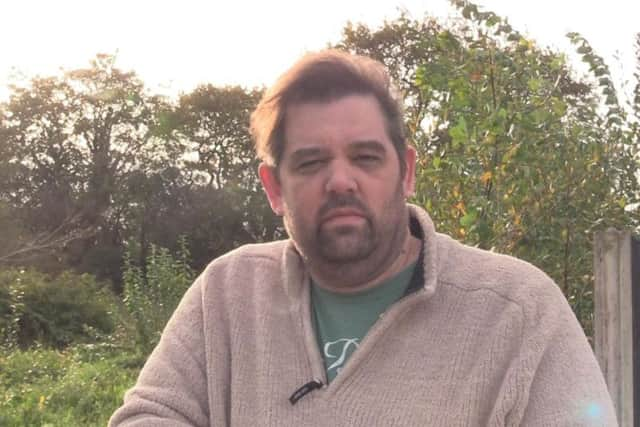Leyland resident wants planning permission for apartment block revoked


South Ribble Borough Council gave the go-ahead last month for a block of six apartments on land off Leyland Lane.
But Dave Tipping, whose own flat in Butlers Farm Court backs onto the plot, says there has been a mistake which means that parts of the site will sit too close to the age-old trees. He has combined an aerial photograph of the woodland with a map of the planned development – and says the results are obvious.


Advertisement
Hide AdAdvertisement
Hide Ad“The [council’s] ecologist recommended a buffer zone 8 metres away from the ancient woodland, which I have overlaid on the [site] plan – and it’s right the way through the middle of some of the car parking spaces and completely on top of the extended bin store.
“I attempted to provide this evidence to the planning committee at their meeting, but was refused,” Mr. Tipping explains.
Permission was granted after the applicant agreed to a request from the Environment Agency for a separate 8-metre buffer from the Shaw Brook watercourse at the back of the proposed development.
Dave Tipping believes that there has been a mix-up between the two buffer zones, but is confident that his own calculations are correct.


Advertisement
Hide AdAdvertisement
Hide Ad“The proportions [of the maps and photos] weren’t changed at all – the dimensions are the same,” he says.
In a statement, South Ribble Borough Council said: “Full and proper consultation was carried out – including by an ecologist, an arboriculturalist, and the Environment Agency – so the council is satisfied with the thoroughness and accuracy of the report put before the Committee.”
Chris Weetman, the agent for the application, said that ecology advisers would have “flagged up” any suggestion that the car park and bin storage were in the wrong place and the scheme would have been amended.
“However, we do not believe that would have fundamentally undermined the whole development, which, whilst it may not be popular locally, accords with national and local planning policies – and that is how the law requires decisions to be made,” Mr. Weetman added.
Advertisement
Hide AdAdvertisement
Hide AdMr. Tipping has raised his concerns with South Ribble Borough Council and has received an acknowledgement, but is still awaiting a full response.
"The site is not suitable for six apartments - if the plans had been for a couple of semis or detached houses, that would be a different matter," he says.
Papers presented to South Ribble’s planning committee revealed that the proposed development at Butlers Farm Court would not have any impact on sites of special scientific interest in the area. However, a number of conditions were imposed to protect water voles and birds.
HOW CAN YOU CONTEST A PLANNING DECISION?
An appeal against a planning decision can only be made by the person who applied for the permission – and not a third party.
Advertisement
Hide AdAdvertisement
Hide AdComplaints about the planning process can be made to the Local Government Ombudsman, but the Ombudsman cannot investigate a decision just because an individual disagrees with it. Even if the process is found to have been flawed, the Ombudsman cannot overturn planning permission once it has been granted.
Local authorities can revoke their permission, but not usually without the payment of compensation. The Secretary of State can also overturn a planning decision, but any resultant compensation would still have to be paid by the local authority which granted permission in the first place.
SOURCE: Planning Portal and the House of Commons Library
